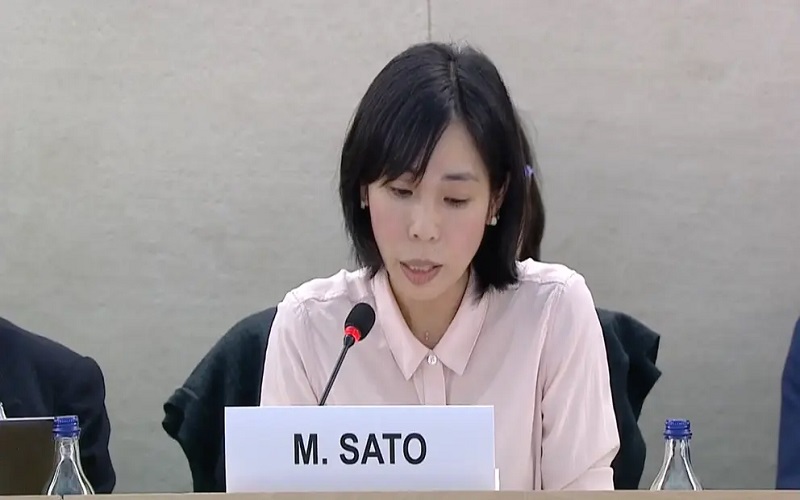In a recent interview with UN Web TV, Mai Sato, the United Nations Special Rapporteur on human rights in Iran, voiced grave concerns over the human rights landscape in the country, particularly focusing on violations of freedom of expression and assembly. Sato highlighted how Iranian authorities are systematically curtailing the rights of civil society, often using national security charges to detain human rights defenders and journalists, many of whom face health risks due to limited access to medical care in prison.
Threats to Civil Society and Press Freedom
Sato detailed how Iranian civil society has come under intensified pressure, with human rights advocates and journalists frequently threatened, arrested, and prosecuted on vague security-related charges. Once imprisoned, these individuals are frequently deprived of basic healthcare, a situation that further jeopardizes their well-being and underlines the harsh conditions facing detainees across the country.
The Use of Capital Punishment
The Iranian government’s extensive use of the death penalty has also drawn sharp criticism. Citing Article 6 of the International Covenant on Civil and Political Rights (ICCPR), Sato explained that while this article allows the death penalty for only the “most serious crimes,” the UN Human Rights Committee interprets this as applying solely to cases of intentional murder. However, Iran’s legal authorities often invoke Article 6 to justify executions on broader charges, leading to an alarmingly high execution rate.
Escalation in Executions
Over the past year, Iran has witnessed a significant increase in executions, with at least 811 individuals reportedly executed between October 2023 and October 2024, according to human rights sources. Disturbingly, these figures include four juvenile offenders. Recent waves of executions underscore the gravity of the situation. For example, on Wednesday, November 6, 16 prisoners were executed across various prisons, including Qezelhessar, where eleven were identified by name while two others remain unidentified. In addition, executions took place in other cities, with multiple individuals put to death in Khorramabad, Ahar, Shiraz, and Zanjan.
The day prior, November 5, saw another round of executions, with 11 prisoners hanged, including six in Mashhad and one in Zahedan. The names of several of these executed prisoners have been disclosed by authorities, although details remain scarce for some victims. On Saturday, November 2, three men were executed in Isfahan, adding to the toll since Massoud Pezeshkian’s tenure began in July, with at least 438 executions recorded since his appointment.
Reactions from the National Council of Resistance of Iran
Maryam Rajavi, President-elect of the National Council of Resistance of Iran (NCRI), condemned the escalating executions, describing them as a tactic by Supreme Leader Ali Khamenei to stifle public dissent and forestall potential uprisings. Rajavi emphasized that each execution leaves families and children in mourning, deepening the cycle of loss and grief across the nation.
In her statement, Rajavi argued that international silence and policies of appeasement toward Iran’s regime only serve to embolden further human rights abuses and acts of aggression. She called on the international community to take decisive action, asserting that diplomatic inaction enables the Iranian government to continue its brutal practices without accountability. Rajavi advocated for isolating the regime on the global stage and called for its leaders to be tried for decades of alleged crimes against humanity and genocide.
A Call for International Accountability
The escalating rate of executions in Iran, combined with widespread reports of persecution and suppression, demands urgent international attention. As calls grow louder for accountability, human rights advocates urge the global community to take firm, unified action to support Iran’s civil society, condemn the regime’s practices, and advocate for a system of justice that respects fundamental human rights.
This wave of repression and state-led violence against dissenters and marginalized populations not only affects individual lives but also presents a significant challenge to the fundamental principles of human rights globally.

